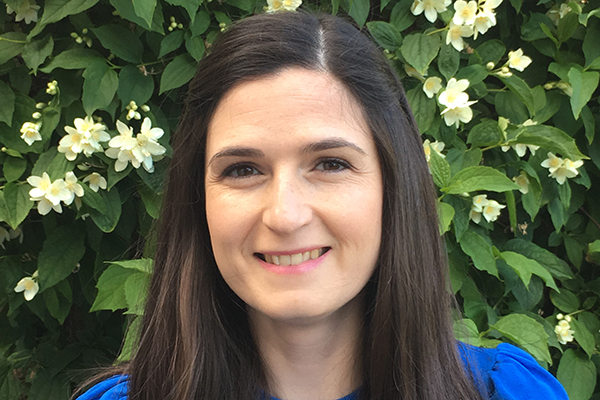Secondary Supervisor(s): Debbie Rees, Dr Daniel J. Sargent (External)
Maria Carcamo de la Concepcion

Research Groups: Food Systems
Natural Resources Institute, Faculty of Engineering & Science
Maria’s interests are the molecular characterisation of genes associated with the deterioration of quality of blueberries after harvest and during storage and shelf-life and quantifying changes in post-harvest quality traits that characterise changes in consumer acceptability.
Maria has identified differentially expressed genes associated with changes in textural properties of two varieties of blueberries that have different softening profiles after harvest; one cv. Legacy that retains good texture and eating quality after harvest and the cv Bluecrop that softens rapidly once harvested and has a short storage and shelf-life. She finds exciting how the stress caused by post-harvest cold storage can induce and repress genes associated with important quality traits of texture linked to cell wall structure and moisture retention, as well as, regulation of changes in cuticular wax structure, osmotic stress and turgor signalling.
Maria has thoroughly enjoyed linking gene functions with measurable traits such as those regulating firmness retention during blueberry storage, and how different molecular markers for specific gene traits could be used in the future to improve the blueberry fruit quality and handling after harvest. Additionally, her investigation focuses on characterizing the mechanical (firmness) and physiological (respiration and moisture loss) properties of blueberry at harvest and during storage to gain important knowledge on how and when the mechanical properties of berries are influenced by fruit respiration and moisture loss. Her research also spans the cell and tissue changes, and the volatile organic compounds (VOCs) of the skin during blueberry storage using innovative and non-destructive technologies as optical coherence tomography (OCT) and direct analysis real time (DART). Maria has had the opportunity to collaborate with Driscoll’s a global breeder and supplier of soft fruit and the University of Kent who have helped with non-destructive testing.
Maria thinks that her future correlation studies of tissue structure and VOCs with moisture loss and firmness, together with DEGs, will help unravel the mechanisms governing textural changes in blueberries adding valuable knowledge for blueberry breeding programmes, soft-fruit growers, shippers and the retail sector.
Secondary Supervisor(s): Debbie Rees, Dr Daniel J. Sargent (External)
Maria Carcamo de la Concepcion holds a BSc Hons in Biological Sciences from University of Leon (Spain) and a MSc in Biology and Biotechnology of breeding from University of Murcia in Spain. Following her studies, she won a Leonardo da Vinci international grant from the Spanish government to do a six-month internship in the molecular breeding team at East Malling Research (EMR). In 2014, Maria joined the team as molecular breeder assistant and worked on Marker Assisted Breeding in order to select desirable quality traits in apple and pear rootstock, as well as, in cherry and raspberry cultivars as a part of the Genetics Genomic and Breeding department at NIAB EMR. Simultaneously to her job as molecular breeder assistant she worked supporting the commercial DNA fingerprinting service at NIAB EMR where she eventually became the manager of the service. In October 2017, Maria joined University of Greenwich to begin her PhD studentship at the Natural Resources Institute in collaboration to Driscoll’s Genetics Limited to investigate the molecular mechanisms behind blueberry fruit texture and the gene expression changes that occur during post-harvest in blueberry.
2019 – The 2019 Worshipful Company of Fruiterers’ Student Prize
2018 – Financial award sponsored by NERC in order to participate in the Biotechnology YES competition 2018.
2013 – Leornardo da Vinci – Cogmos, international internship grant at University of Leon (Spain)

